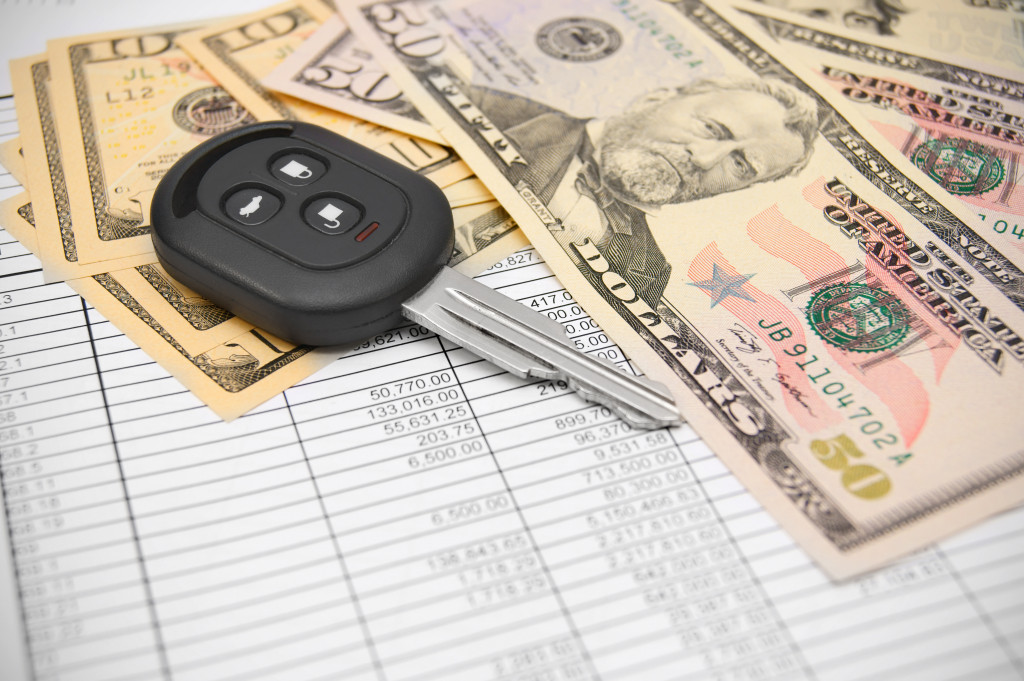- Car ownership in the U.S. is prevalent and costly, with average annual spending exceeding $7,000 for most households.
- Overspending on cars often results from poor maintenance, aggressive driving, and insufficient car insurance.
- Technology in modern cars, if appropriately used, can contribute to cost savings and enhanced safety.
- Alternatives such as public transportation and car-sharing programs can help reduce car-related expenses significantly.
- Purchasing used vehicles and comparing insurance rates can also lead to substantial savings in car ownership costs.
Your car is probably one of the most expensive things you own. It’s easy to see why car ownership can be a financial burden between car payments, insurance, gas, and maintenance. However, if you feel like you’re spending too much money on your car, there may be some things you can do to bring those costs down. Here’s what you need to know about car ownership in the U.S., the reasons you’re spending too much on your car, and alternatives you can do if you want to reduce overall spending on your vehicle.
Car Ownership in The U.S.
It’s estimated that 92% of households are car owners in the U.S. This means that most Americans rely on their cars to get around and conduct daily activities, such as work or running errands. The average car cost ranges from $7,000 to $10,000 annually (not including purchase price). This means that owning a car can be pretty expensive for many people.
It’s also important to note that Americans spend about $629 per month or over $7,000 annually on their cars. This includes car payments, insurance, gas, and maintenance. It’s easy to see why so many Americans feel like they’re spending too much money on their cars.
Reasons You’re Spending Too Much Money on Your Car
Here are a few common reasons you might spend too much on your car. Here are some of them:
1. Lack of Maintenance
One of the most common reasons people spend too much on their cars is because they’re not maintaining them properly. By neglecting things like oil changes, brake inspections, and tire rotations, you’re setting yourself up for expensive repairs down the line. Regular maintenance is essential to keep your car in good working order and avoid costly repair bills. Additionally, if you ever have the money or time, why not do your car maintenance? You can invest in specialty auto repair equipment that can fit your garage. You can save money and time by going to an auto repair shop.

2. Aggressive Driving
If you’re prone to flooring the gas pedal and slamming on the brakes, you’re putting yourself in danger and a lot of stress on your car. Aggressive driving can lead to premature wear and tear on your brakes, tires, and suspension, and it can also cause your engine to work harder than it needs to. By driving more conservatively, you can extend the life of your car and save money on repairs and maintenance.
3. Lack of Car Insurance
Car insurance is a necessary expense for every driver, but that doesn’t mean you have to pay more than you need to. You could leave money on the table if you’re not shopping around for insurance quotes. Take some time to compare rates from different providers and see if you can find a better deal. Also, consider raising your deductibles or adjusting your coverage to save money on your monthly premiums.
4. Lack of Technology
Modern cars have a wide range of safety and convenience features that can help you save money in the long run. For example, adaptive cruise control can help you maintain a safe following distance and reduce fuel consumption, while lane departure warning systems can help you avoid costly accidents. If your car has these features, make sure you’re using them to their full potential.
5. No Alternative Transportation Option
Finally, if you’re looking to cut costs, you may want to consider alternative transportation options. Depending on your location and lifestyle, you may be able to save money by walking, biking, or using public transportation instead of driving. Of course, this isn’t always feasible, but it’s worth considering if you want to reduce your car-related expenses.
Alternatives to Save Money on Your Vehicle
If you want to save money on your car, here are a few options you can consider:

Buy Used Cars
Buying used cars is one of the best ways to get a reliable vehicle without breaking the bank. You can find good quality cars for 40% to 50% less than new models. Just get a vehicle history report and inspect it by a qualified mechanic before you buy.
Research Car Insurance Costs
As mentioned earlier, shopping around for car insurance can help you save money on your premiums. Don’t be afraid to compare quotes from different providers and consider adjusting your coverage or raising the deductibles if needed.
Cut Back on Driving
If you can, limit how many times you drive your car. Consider alternative transportation options like walking or biking if you can do so. You’ll save money on gas and help reduce your environmental footprint simultaneously.
Join Car Sharing Programs
Car-sharing programs are rapidly becoming popular in the U.S. and other countries worldwide. These programs allow you to rent cars by the hour or day, eliminating the need for car ownership. This could help you save money if you don’t drive very often.
While car ownership offers convenience and flexibility, it can come with significant costs. Many factors can inflate your vehicle-related expenses, from maintenance and insurance to gas and aggressive driving habits. However, you can significantly reduce these costs by taking proactive measures. Remember, the key to saving money on your car is to be informed, proactive, and willing to consider alternatives.

